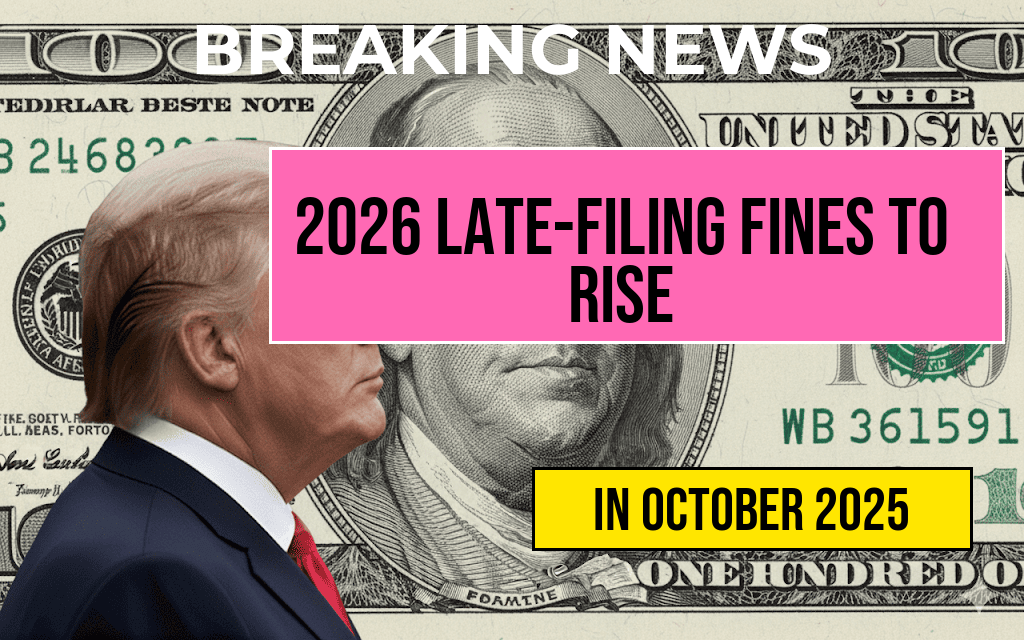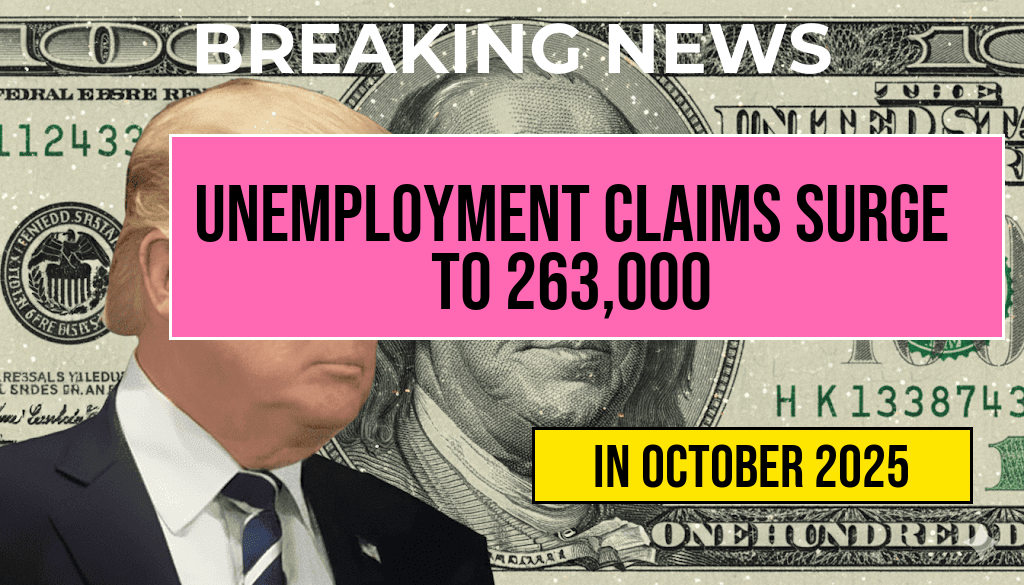As tax season approaches, American taxpayers are bracing for an increase in late-filing penalties that could significantly inflate their tax bills by hundreds of dollars. The Internal Revenue Service (IRS) is set to implement a rise in penalties for the 2026 tax year, which is expected to affect millions of filers across the country. These changes are part of a broader effort to encourage timely submissions and ensure compliance with tax regulations. As the IRS continues to modernize its systems and processes, understanding the implications of these new penalties is crucial for taxpayers, especially those who may find themselves in a position where filing on time becomes challenging.
Understanding the New Penalty Structure
The IRS has proposed adjustments to its penalty structure, which will take effect for tax returns due in 2026. The new rules will see a significant increase in the fines imposed on late filers. Currently, the penalty for failing to file a tax return on time stands at 5% of the unpaid tax amount for each month the return is late, up to a maximum of 25%. However, under the upcoming regulations, this percentage is expected to rise, resulting in higher costs for those who do not meet the filing deadlines.
Potential Financial Impact
Taxpayers who delay filing their returns could face fines that escalate quickly, adding considerable costs to their overall tax liability. For instance, if an individual owes $1,000 in taxes and files two months late, the current penalty would amount to $100. However, with the proposed increases, that penalty could rise to $150 or more, depending on the finalized changes. Below is a breakdown of the anticipated penalty structure:
| Months Late | Current Penalty (5%) | Projected Penalty (New Rate) |
|---|---|---|
| 1 Month | $50 | $75 |
| 2 Months | $100 | $150 |
| 3 Months | $150 | $225 |
| 4+ Months | $250 | $375+ |
Reasons Behind the Changes
The IRS attributes the need for these increased penalties to several factors, including rising operational costs and a need to deter non-compliance. Taxpayer compliance is crucial for funding government services, and timely filing is an essential part of that equation. Increasing penalties serves as a means to encourage responsible financial behavior among taxpayers.
Advice for Taxpayers
Given the impending changes, taxpayers are advised to take proactive steps to ensure their returns are filed accurately and on time. Here are some strategies to consider:
- Organize Financial Documents Early: Gather all necessary documents well in advance to avoid last-minute stress.
- Consider Professional Help: Engaging a tax professional can help navigate complex tax situations and ensure compliance with the latest regulations.
- Utilize Electronic Filing: E-filing is often faster and can reduce the risk of errors, helping to meet deadlines more efficiently.
- Request Extensions Wisely: If you need more time, consider filing for an extension, but be aware that this does not extend the time to pay any taxes owed.
Looking Ahead
As the IRS prepares to roll out these changes, taxpayers must remain informed about their obligations and the potential financial implications. Keeping abreast of the latest developments in tax regulations can help individuals avoid costly penalties and ensure compliance with federal laws. For more information on tax penalties and filing deadlines, the IRS website provides a wealth of resources, and taxpayers are encouraged to consult reputable financial news outlets for updates.
For additional insights on the impact of late-filing penalties, consider visiting Forbes or the Wikipedia page on Tax Penalties.
Frequently Asked Questions
What are the new late-filing penalties expected in 2026?
The new late-filing penalties expected in 2026 could significantly increase your tax bill, with fines potentially reaching hundreds of dollars for those who fail to file on time.
How will the increased penalties affect taxpayers?
The increased penalties are designed to encourage timely filing, which means that taxpayers who do not submit their returns by the deadline may face a larger financial burden than in previous years.
What should I do to avoid these late-filing fines?
To avoid the late-filing fines, ensure that you file your tax return on time, or consider filing for an extension if necessary. Staying informed about the deadlines can help you prevent penalties.
Are there any exceptions to the late-filing penalties?
While the article does not specify exceptions, typically, exceptions may be available for certain circumstances such as natural disasters or other unforeseen events that could affect your ability to file on time.
When will the new penalties take effect?
The new penalties are expected to take effect in 2026, so it is crucial for taxpayers to be aware of these changes well in advance to prepare accordingly.











